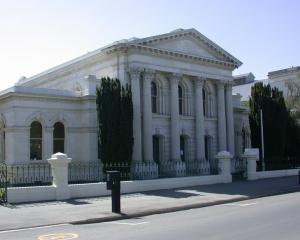The trial of a new service that will give rural people, particularly in isolated areas, greater and easier access to counselling is to be conducted in North Otago.
It is being jointly promoted by North Otago Rural Women and Relationships Aotearoa, who will provide a senior counsellor based in Dunedin for the service.
The counselling sessions will be available by telephone, offering real benefits for rural people who may find it difficult to travel for face-to-face sessions. It will offer all aspects of counselling, from emotional to parenting and couples.
A Statistics New Zealand report last year showed suicide rates were higher in rural areas at 16 per 100,000 people, compared with 11.2 for every 100,000 people living in cities.
However, Relationships Aotearoa general manager operations Bernie Holden said yesterday the new service was not related to those findings, but arose from a combination of factors, including extending counselling services and Rural Women's wish to be involved.
Those receiving counselling would pay for the service, which would be offered during normal weekday working hours with the possibility of some evening sessions, if needed.
It would be discreet and confidential, meeting the need for anonymity in smaller communities and would work around farming, work and family.
The idea of the service followed telephone counselling offered by Relationships Aotearoa after the Christchurch earthquake, she said.
It was felt the same thing could be applied in rural areas and was raised at a rural women's conference. The North Otago provincial executive offered to run the pilot.
It would be the first time such a service had been widely offered.
The pilot would be reviewed after about three months to see if it was successful and could be extended to other areas, she said.
Rural Women provincial chairwoman Margaret Hore said yesterday the new service was now being launched in North Otago and promoted to rural families through publicity and pamphlets.
North Otago was given the opportunity because the branch expressed an interest in running the pilot.
A free phone (0800 735-283) had been set up for people to make appointments.
Mrs Hore could see benefits for rural people from the service, particularly those who found it difficult to travel for counselling.












